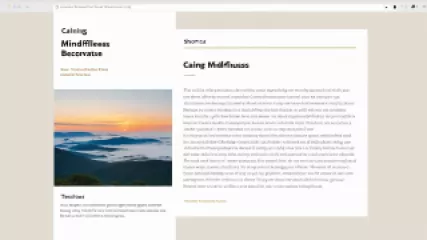Uncovering the Mental Landscapes of Digital Nomads: A Research Summary
1 year ago
Digital Nomad Psychology
How Cooperation Helped Me Manage Stress and Thrive
1 year ago
Psychology of Cooperation
My Journey Through Psychoeducation: Unlocking Personal Growth
1 year ago
Psychoeducation
10 Best Natural Remedies for Improving Mental Health
1 year ago
Nature And Mental Health
My Journey Through Seasonal Affective Disorder
1 year ago
Seasonal Affective Disorder
How Can I Boost My Happiness With Online Support Sessions?
1 year ago
Happiness
Overcoming Homesickness: Lessons from 'The Wizard of Oz'
1 year ago
Coping with Homesickness
10 Best Therapeutic Writing Techniques for Stress Relief
1 year ago
Therapeutic Writing
10 Powerful Ways Art Can Help Heal
1 year ago
Healing Through Art
How to Overcome Workaholism: Key Strategies and Tips
1 year ago
Workaholism
Breaking the Cycle: My Journey to Overcome Bad Habits
1 year ago
Breaking Bad Habits
7 Lessons on Psychological Safety from 'The Office'
1 year ago
Psychological Safety
How to End Mental Health Stigma: 7 Powerful Strategies
1 year ago
Mental Health Stigma
My Journey Towards Understanding the Fundamentals of Psychology
1 year ago
Psychology Fundamentals
10 Proven Stress Management Strategies for a Healthier Life
1 year ago
Managing Chronic Stress














